There is a question that may affect any of us at a particular time : What is normal and how different am I? Thinking about it, many of us will be reminded of times when we were teased or bullied, or when we mocked or shunned others. We are all scarred by discrimination.
Degrees of difference from a standard of normal are sometimes measured to establish categories of people who need specialist support to benefit from education, social life and employment.
18% of Australians have a disability according to the Australian Institute of Health and Welfare
The proportion of people with intellectual disability is estimated at 3% of the population. Intellectual disability is determined as an intellectual deficit of two or more standard deviations below the population mean, or an IQ of 70 or below, measured with an individualized, standardised, culturally appropriate, psychometrically sound measure before the person turns 18. Intellectual disability also entails difficulty in adaptive functioning, which refers to how effectively individuals cope with everyday life demands, and how well they meet standards of personal independence expected of someone of that age and socioeconomic and cultural background.
People with Autism, defined as on the Autism Spectrum are estimated at 1% of population, a 25% increase since 1960
In a spectrum disorder, one or all of the areas of a person’s difference can be displayed in a mild or severe way. Autism can be understood in terms of neurodiversity which refers to variation in the human brain regarding sociability, learning, attention, mood and other mental functions.
Social categories help identify needs for community support. They also make targets for bullies and other malcontents who build themselves up by putting others down. People with disability may be easy prey, but they are less of a target when they are acclaimed as powerful and capable as in the case of talented and successful people who are on the autism spectrum. An autistic person’s difference may entail a superior skill.
Neurodiversity is the idea that the brains of people with autism are not deficient but merely wired differently from people who are more neurotypical. Neurological differences can be assets. And being normal has its limitations. Investigative journalist Harvey Blume wrote in 1998: ‘Neurodiversity may be every bit as crucial for the human race as biodiversity is for life in general.” Referencing The Institute for the Study of the Neurologically Typical, ISNT (a parody of institutes devoted to the study of autism), he quoted Muskie, the site's Webmaster: "Neurotypical syndrome is a neurobiological disorder characterized by preoccupation with social concerns, delusions of superiority, and obsession with conformity."
Autism can be associated with other neurodevelopmental, mental or behavioural states, such as language disorders, intellectual disability, specific learning disorders, and ADHD. These other conditions also exist across a spectrum of ability. All of us, whether or not we have clinically diagnosed differences, might be placed in a spectrum in relations to various aspects of social, spatial and organisational skills and our ability to progress through life. Seeing ourselves in this framework might help us to accept and help each other. It could reduce the bullying of those whose differences are more obvious.
